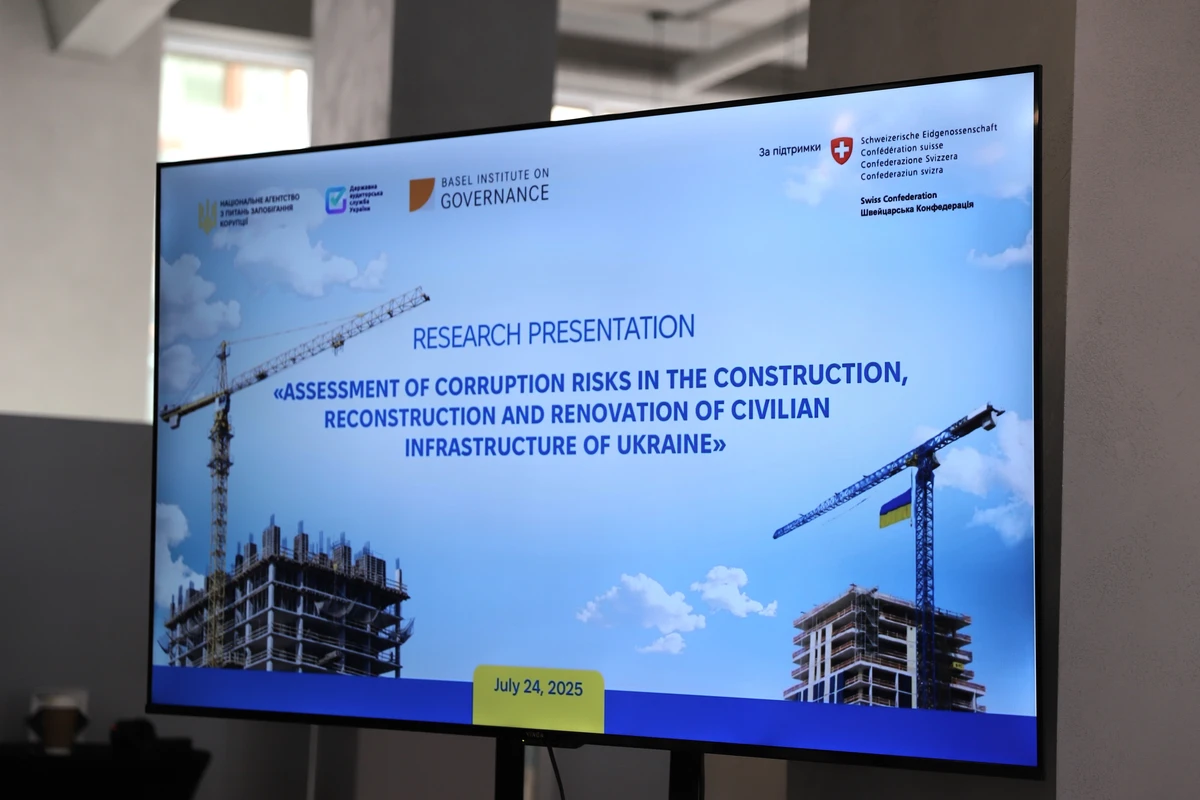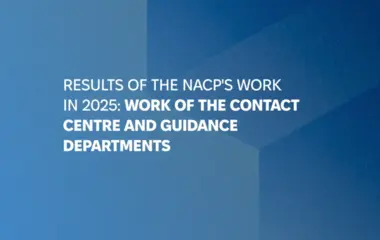The reconstruction and recovery of Ukraine due to the armed aggression of the Russian Federation is one of the key areas of state policy. At the same time, this area remains critically vulnerable to corruption.
Experts of the National Agency on Corruption Prevention (NACP), together with the State Audit Service of Ukraine and the Basel Institute on Governance, with the support of Switzerland, have prepared the study “Assesment of Corruption Risks in the Construction, Reconstruction, and Renovation of Civilian Infrastrucutre of Ukraine.”
“The National Agency identifies the recovery sector as one that requires special attention. Last year, the NACP improved its structure by creating a dedicated unit to implement anti-corruption policy in this area. As part of the study, our experts and partners identified the most common corruption risks in the recovery sector and developed recommendations for eliminating them. Implementing these will help address the main risks and increase the transparency and effectiveness of recovery projects,” said NACP Head Viktor Pavlushchyk.

Experts identified ten key corruption risks that may contribute to offenses at various stages: during the selection of facilities for reconstruction, development of project documentation, procurement procedures, and state control over the completed work. In particular, there are no clear criteria for selecting recovery projects, and poor quality control of project documentation leads to unjustified cost overruns and creates conditions for collusion between designers and customers. A significant factor increasing the vulnerability of the entire sector is the moratorium on architectural and construction oversight, which makes systematic state control over the quality of completed work impossible.
Based on the analysis, experts developed strategic recommendations for improving the regulatory framework, governance mechanisms, and control procedures.
“We are committed to making the recovery sector completely transparent and ensuring that every allocated hryvnia is used as intended. Public funds can only be saved by preventing violations. For this reason, the State Audit Service has developed a number of proposals to improve the legal framework for the reconstruction of destroyed facilities, which will strengthen financial oversight of the recovery process, optimize expenses, and save budget funds during construction,” said Head of the State Audit Service of Ukraine Alla Basalaieva.

A number of the corruption risks identified in the study stem from legislative deficiencies and need to be addressed by adopting or amending regulatory legal acts. These legislative changes should standardize approaches to prioritizing recovery projects, introduce effective mechanisms for independent oversight, digitize procedures, and establish clear standards for all participants in the process. The NACP provided relevant recommendations to the responsible authorities, in particular the Ministry for Communities and Territories Development of Ukraine and the State Agency for Restoration and Development of Infrastructure of Ukraine. NACP Head Viktor Pavlushchyk emphasized that transparent legislation and the elimination of corruption risks are among the most effective ways to prevent corruption.
“We expect that the results of this analysis will be used by state authorities, local governments, and international partners in further strategic planning. We are ready to support the implementation of the recommendations and to share best international practices in corruption prevention during reconstruction,” said Juhani Grossmann, Senior Advisor for Central and Eastern Europe at the Basel Institute on Governance.

The presentation of the study was attended by representatives of the Ministry for Communities Development, the State Restoration Agency, the Accounting Chamber, the National Anti-Corruption Bureau of Ukraine, regional military administrations, local governments, civil society organizations, and journalists. The discussion of the study’s findings also included the participation of the Chair of the Verkhovna Rada Committee on State Power Organization, Local Self-Government, Regional Development and Urban Planning Olena Shuliak and the Chair of the Verkhovna Rada Committee on Environmental Policy and Nature Management Oleh Bondarenko.
The study in English is available at the link.
The study was prepared within the framework of the project “Supporting Anti-Corruption Efforts and Asset Recovery,” supported by the Government of the Swiss Confederation and implemented by the Basel Institute on Governance.













